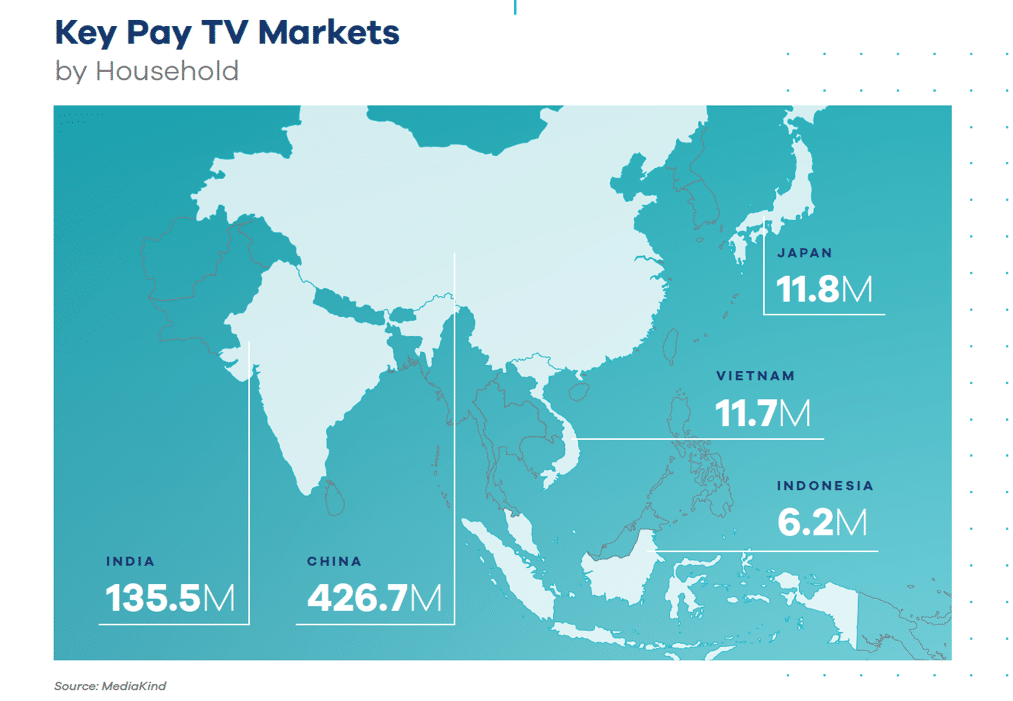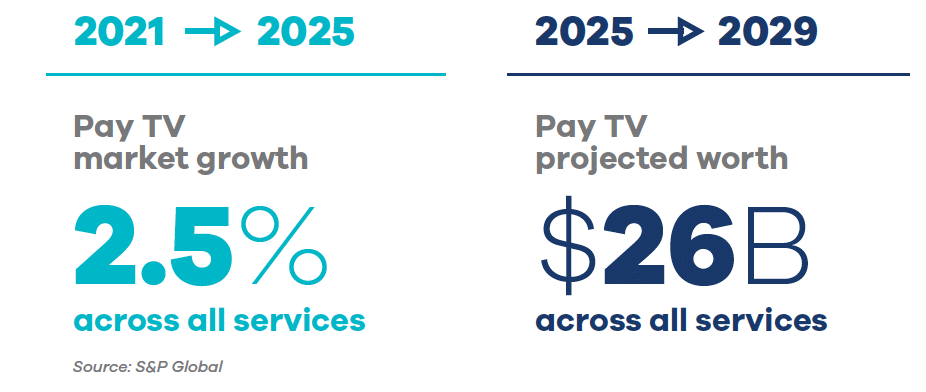With 63% market penetration in the Asia-Pacific region, traditional Pay TV services lead the way in revenue generation
The trends and analyses featured in Intelsat’s Media Market Watch 2021 demonstrate that the reach, reliability, capacity and revenue potential of satellite are proving that it’s still the most future-forward option for media distribution.

The Asia-Pacific region is one of the largest Pay TV sectors in the world, with 17 key markets (source: AVIA) and 655 million Pay TV subscribers.
Multichannel cable households make up roughly 58% of the market (source: S&P Global), and over the next 10 years, cable is expected to maintain its lead in subscribers and revenue.

Revenue Ramps Up
Programmers in the region continue to increase their revenue from TV. Meanwhile, the cost of distribution remains low; globally, it’s less than 12 cents a day, on average, to distribute one channel to thousands of viewers when using satellite.
By 2024, broadcast TV advertising throughout Asia-Pacific is expected to hit $44 billion, far outpacing online advertising, which is only expected to reach $2 billion (source: AVIA).

Why OTT Alone Doesn’t Pose a Threat
While OTT is seeing success in largely urbanized places like Australia and Singapore due to strong broadband penetration, OTT distribution is struggling to keep up with Pay TV in other areas of this region. The reasons for this vary, but reliability and quality are still big stumbling blocks for OTT.
Satellite Is Delivering Capacity, Quality and Reach
It’s all about quality and capacity. Each of Intelsat’s satellites offers over 200 channels, including HD. Most other operators in the region only manage about half of that, even as demand for high-quality content keeps rising.

Giving Programmers A Competitive Edge
Through a combination of network technologies, managed services and strategic partnerships, Intelsat remains one of the few satellite operators in the Asia-Pacific market with global distribution capability to bring viewers what they want now and in the future.
Related Posts

News Release
Intelsat Exclusive Satellite Provider for Delivery of PBS Content April 17, 2023
Blog
Higher Throughputs and Managed Services to Improve Brazil Connectivity February 21, 2023


